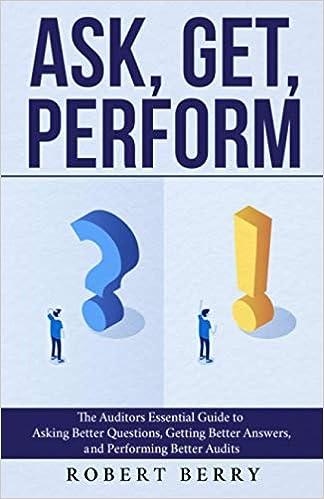Answered step by step
Verified Expert Solution
Question
1 Approved Answer
After thinking about it for a while, you suggest the following possibilities to help him turn things around. 1. Lower the selling price by 10%





After thinking about it for a while, you suggest the following possibilities to help him turn things around. 1. Lower the selling price by 10% to increase sales volume by 5%. 2. Advertise on the radio and with social media, for a combined cost of $1,000, to increase volume by 10%. 3. Use a more affordable paper on which to print the posters (available for $0.60 per unit), in combination with a less-expensive film to cover the top of the poster (available for $0.40 per unit). 4. Instead of paying the salespeople a fixed salary, move to a commission-based compensation plan (save $20,000 in salary; incur $1.60 per unit sold commission), which should increase sales volume by 20%. After these initial discussions, Joseph realizes that he has ignored any possible tax effects thus far. He estimates that his business " will be subject to a 30% tax rate. Will any of the proposed scenarios allow him to reach an after-tax income goal of $8,000 ? If so, which one(s)? (Round answers to 2 decimal places, eg. 5,125.25.) Joseph, the owner of a local poster shop, comes to you for help. "We've only been breaking even the past two years, and I'm getting very frustrated! I don't know what to do because I feel like I've already tried to improve our processes as much as possible, but we still haven't been able to generate a profit. Do you have any suggestions as to how we can turn things around? I just don't think we can even consider moving forward with this business unless we can earn $8,000 in operating income next year. Even then, we'll have to think long and hard about what the future holds." Joseph shares the following information with you, as you ponder different scenarios to help your friend. After thinking about it for a while, you suggest the following possibilities to help him turn things around. 1. Lower the selling price by 10% to increase sales volume by 5%. 2. Advertise on the radio and with social media, for a combined cost of $1,000, to increase volume by 10%. Analyze each of the proposals against the current situation to determine if it will help Joseph achieve his profit goal. (Enter loss using elther a negotlve s(gn preceding the number eg. -45 or parentheses eg. (45). Round answers to 2 decimal places, eg. 5,125.25.) The following steps are involved in using data analytics for decision-making. - Retrieve and manipulate. - Store information. - Make decisions. - Gain insights. - Source raw data. Put the steps in their proper order. 1. 2. 3. After thinking about it for a while, you suggest the following possibilities to help him turn things around. 1. Lower the selling price by 10% to increase sales volume by 5%. 2. Advertise on the radio and with social media, for a combined cost of $1,000, to increase volume by 10%. 3. Use a more affordable paper on which to print the posters (available for $0.60 per unit), in combination with a less-expensive film to cover the top of the poster (available for $0.40 per unit). 4. Instead of paying the salespeople a fixed salary, move to a commission-based compensation plan (save $20,000 in salary; incur $1.60 per unit sold commission), which should increase sales volume by 20%. After these initial discussions, Joseph realizes that he has ignored any possible tax effects thus far. He estimates that his business " will be subject to a 30% tax rate. Will any of the proposed scenarios allow him to reach an after-tax income goal of $8,000 ? If so, which one(s)? (Round answers to 2 decimal places, eg. 5,125.25.) Joseph, the owner of a local poster shop, comes to you for help. "We've only been breaking even the past two years, and I'm getting very frustrated! I don't know what to do because I feel like I've already tried to improve our processes as much as possible, but we still haven't been able to generate a profit. Do you have any suggestions as to how we can turn things around? I just don't think we can even consider moving forward with this business unless we can earn $8,000 in operating income next year. Even then, we'll have to think long and hard about what the future holds." Joseph shares the following information with you, as you ponder different scenarios to help your friend. After thinking about it for a while, you suggest the following possibilities to help him turn things around. 1. Lower the selling price by 10% to increase sales volume by 5%. 2. Advertise on the radio and with social media, for a combined cost of $1,000, to increase volume by 10%. Analyze each of the proposals against the current situation to determine if it will help Joseph achieve his profit goal. (Enter loss using elther a negotlve s(gn preceding the number eg. -45 or parentheses eg. (45). Round answers to 2 decimal places, eg. 5,125.25.) The following steps are involved in using data analytics for decision-making. - Retrieve and manipulate. - Store information. - Make decisions. - Gain insights. - Source raw data. Put the steps in their proper order. 1. 2. 3
Step by Step Solution
There are 3 Steps involved in it
Step: 1

Get Instant Access to Expert-Tailored Solutions
See step-by-step solutions with expert insights and AI powered tools for academic success
Step: 2

Step: 3

Ace Your Homework with AI
Get the answers you need in no time with our AI-driven, step-by-step assistance
Get Started


